Resilience, insight and courage will be the watchwords for business in the year ahead
I am not able to remember a time in my working life when there has been so much uncertainty about geopolitics. Some business leaders may remember the fall of the Berlin Wall and the breakup of the Soviet Union.
For people directly affected by these events it was hard to know what was coming next and, for many, some countries’ upheaval and change continued well into the 21st century
From a global business perspective, however, these events heralded an era of extraordinary opportunity.
Stifled nations were being recognised with statehood or old ones reinstated to the soundtrack of Winds of Change by the German rock band Scorpions. The fate of the USSR’s nuclear missiles languishing in former Soviet republics was dealt with sensibly and through international treaties.
China’s move into communist-inspired capitalism seemed to presage a slow change to a more open system of governance. Despite the upheaval and dislocation for many people, the high-level narrative was of a world that was opening to trade, democracy and individual freedoms.
A divided world
Looking at 2023, the winds of change are profoundly unsettling and optimism is in short supply.
Some sociologists predicted a great release of creative energy as the world came out of the pandemic. More broadly, there was a hopeful expectation that people and societies would be renewed and reinvigorated after two years of isolation and restriction.
The reality is that many of the trends that we saw heading into the 2020s were amplified and exacerbated by the pandemic. Democratic societies remain more sharply divided than ever.
Polling in many liberal democracies tells us that significant numbers of younger people are exercising their democratic rights to elect “strong” leaders, with the far right coming to power in Sweden and Italy, as recent examples. The politics of the far left and right are resurgent in many countries.
The US has endured many divisive passages in its history, but is now arguably the closest to significant political violence since the civil war.
We are living in an age of a technological and communications revolution where verifiable facts become harder and harder to ascertain and where all of us, to a greater or lesser extent, interact largely with people who see the world in the same way.
Nationalism, populism and division are the easy answers to complex political and economic challenges, and compromise is harder than ever to find.
Climate crisis
Predictions voiced a decade ago about the effects of a changing climate and global heating seem to have arrived harder and faster than anticipated.
Whether it be drought in Africa and China, fires in Europe, typhoons and hurricanes of record-breaking intensity, the world is changing and the impact on people, agriculture and wildlife presents the world with questions that we seem ill equipped to answer.
Indeed, at a time when countries and populations need transnational answers, the world is at its most fractured and dislocated.
Global institutions are weak and are undermined by those states that were once their strongest backers.
For businesses, the outlook for 2023 is challenging. Most economists predict recessions in major economies. International order, the rule of law and other mainstays of stability are increasingly scarce. The blight of military takeovers in emerging markets refuses to pass into history.
Where business leaders could plan around specific risk events happening in specific markets, it is much harder to plan for wholesale disruption, whether in global energy markets or global regulatory regimes.
Indeed, as more governments adopt more protectionist measures, businesses face a landscape of sanctions and data privacy regimes where compliance with mutually contradictory legislation becomes almost impossible.
Russia-Ukraine war
The backdrop to a world emerging into a discordant and fragmented geopolitical future is the outbreak of war in Europe. In one of the most striking military and intelligence failures of the modern era, the war in Ukraine has fuelled a smouldering fire of inflation and energy shortages to create an inferno of chaos.
The decision of Russian President Vladimir Putin to sever his nation from its major energy market while prosecuting a war, and badly at that, takes such geopolitical miscalculation to a new level.
The effect on energy markets will take time to play through, but the isolation of Russia from Western markets, technologies and financial systems is immediate and its impact will grow.
Russian military failures in Ukraine mean that European countries may have adjusted their fear around further military expansion, but the spectre of nuclear weapons use removes any complacency from calculations.
It feels extraordinary that discussion of whether Russia might deploy nuclear weapons is now as common in boardrooms as it is in NATO planning sessions.
Uncertainty does not get greater than this. We can hope that nuclear disaster is averted, but the process for de-escalation is not clear and credible best-case scenarios are hard to find. The disruption to global energy markets is here to stay and inflation will linger long enough to cause enduring pain.
Cyber warfare
In the fragmenting world order, the weapons of choice for many states will be found in the cyber sphere. This will either be through the spread of disinformation, aided by improving deepfake technology, or through cyber attacks, or both.
As a firm that works in both the geopolitical and cyber arenas, Control Risks can see very clearly the direct correlation between geopolitical tensions and cyber aggression.
An element of uncertainty and fear provides a level of state-versus-state deterrence, but corporates find themselves as easier targets for proxy and real wars. This is made worse by the transfer of military-grade cyber capabilities to criminal or radicalised groups.
We see our clients responding to this uncertain future in a number of ways. They are monitoring and navigating the short-term risk outlook, scenario planning for the longer view, but keeping an eye on strategic opportunities that can emerge from volatility.
At the macro level, building resilience is imperative. Companies need to be prepared to deal with significant disruption caused by political and security incidents. This will be particularly true in emerging markets where the effects of higher commodity prices are beginning to be felt and where state coffers are largely exhausted following the pandemic.
A year of political and social upheaval
2023 will be a year of political and social upheaval as the weight of inflation bears down on stretched populations and governments tackle economic pressures with policy and regulatory lunges.
The budgetary rollercoaster ride visited on markets by the UK government shows how real this risk is. Companies that resist the pressure to be political actors will still feel the pressure from their stakeholders, whether employees or clients, to have a view on the matters of the day.
This is already a very material concern for many US companies as the political discourse there becomes more polarised and digs deeper into areas that had previously been left dormant through an acceptance of compromise, however imperfect.
Amid all the uncertainty, it can be hard to find the hope. A European winter beset by political upheaval, inflation and war is a particularly difficult perspective on which to build confidence. But beyond building resilience, we also know that companies see opportunity ahead.
I mentioned the optimistic, era-catching Winds of Change by Scorpions at the outset. The band’s second most famous song, Rock You Like a Hurricane, feels more apt for 2023.
The year will see more geopolitical and economic volatility and the increasingly apparent effects of a changing climate will add additional stresses and strains.
Resilience, insight and courage will be the watchwords for business in the year ahead.
Nick Allan is chief executive officer of Control Risks





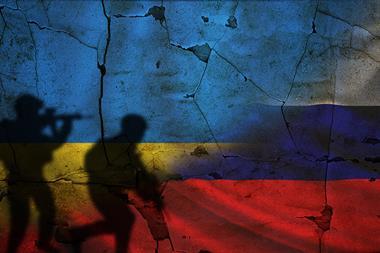
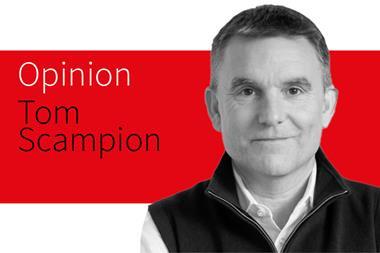
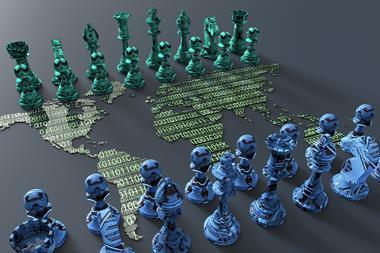

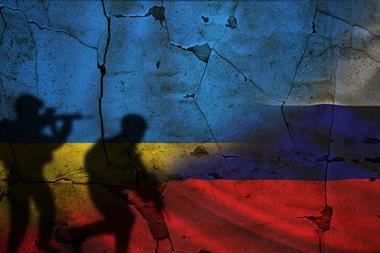
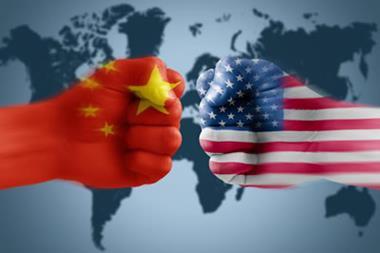









No comments yet